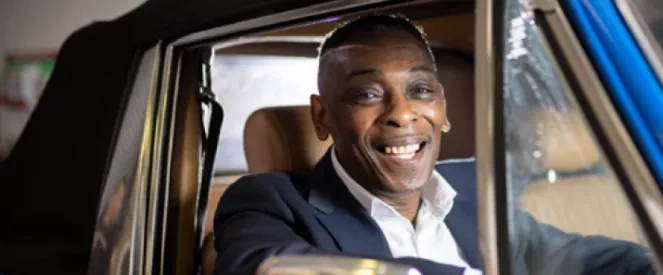How Colin Denton is keeping classic cars on the road

Having surrounded himself with vintage vehicles for decades, Colin Denton remains committed to ensuring the fire and passion – along with the fuel in the legendary cars – burns strong in future generations of mechanics and technicians. The man behind the Classic Car Garage and North London Garages GTA sees it as his mission to keep the vehicles on the road – even if that means his training methods have been overhauled.
“In all honestly, classics weren’t actually meant to be on the road for the length of time that they are,” Denton says. “When these old Rolls-Royces, Bentleys and Porsches were built, the plan wasn’t for them to still be going in 70- or 80-years’ time. One of the biggest problems with that is that the people who were maintaining them over that time are not around anymore and not all of their skills have been passed on.
“It’s a bit like antifreeze,” he reasons. “If you keep diluting it and put in more and more water, it becomes less and less effective. We – in the classics world – need to ensure we keep the content of our antifreeze as strong as we possibly can. I've got to the point now where sometimes I'm looking at cars and discussing what needs to be done with people and they haven't got a clue what I'm talking about!”
Denton’s training operation within North London Garages GTA has around 170 apprentices who are taught how to fix modern cars, but also how to look after ones that date back from as far as the early and distant days of motoring. “Cars from the 1960s and 1970s are now classics and we find that they often go to independent garages, as opposed to specialists such as ourselves,” he explains. “But one of the key things for us now is to make sure our apprentices are trained to identify parts on the vehicle, which some of them might not have seen before. They'll open the bonnet and ask if it’s a carburettor because they’ve only dealt with fuel injected or ECU-controlled systems. So, for them, it's a completely new way of repairing or servicing cars – as well as looking after cars that they've never seen before.”
The apprentices under Denton’s tutelage encounter the full genre of modern powertrains, but garages are seeing more and more classic cars, he says, because there is a rising popularity for them. “They have become a phenomenon in the industry,” he states. “People want to reminisce and but also repair them and keep them on the road. Therefore, part of our training has to cover classic cars, so we’re going back to points and condensers and carburetion so that our apprentices can look at where we’ve come from and compare it to where we are now. That is part of the syllabus that was dropped 25 years ago, but we’ve brought it back.”
Teaching a new generation
One thing is for sure, Denton is fully aware of the task ahead, but he is prepared and ready to teach. “Our next generation need to have an insight into how classic cars work,” he says. “It's necessary for them to be totally aware and in tune with classic cars, and what they actually mean to the industry. In cars such as a Riley or an Austin 30, it’s going to be a challenge for us. There are so few of these cars left – and so few people to repair them – the biggest issue is keeping people up to speed with the type of repairs that they need to have done.”
Thankfully, there is a real enthusiasm from the vast majority of apprentices, says Denton. “When our Triumph Stag gets fired up for a session, the eyes and mouths are wide open and about 95% of the apprentices are totally enthralled by the fact that these cars still exist,” he explains. “There’s been a big shift from 10 years ago and a newfound respect for classic cars – and long may that continue!”




